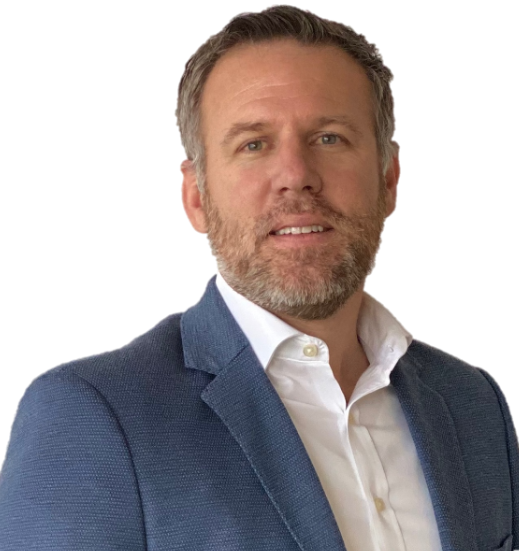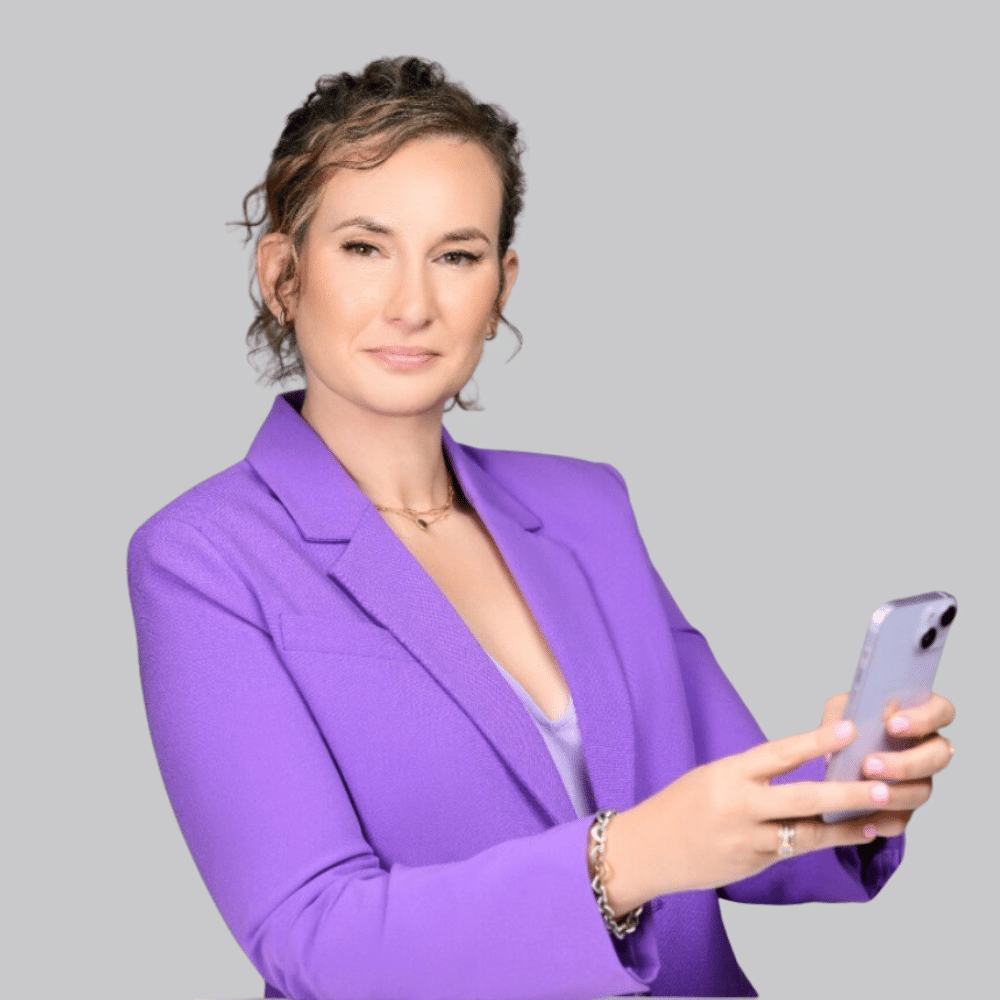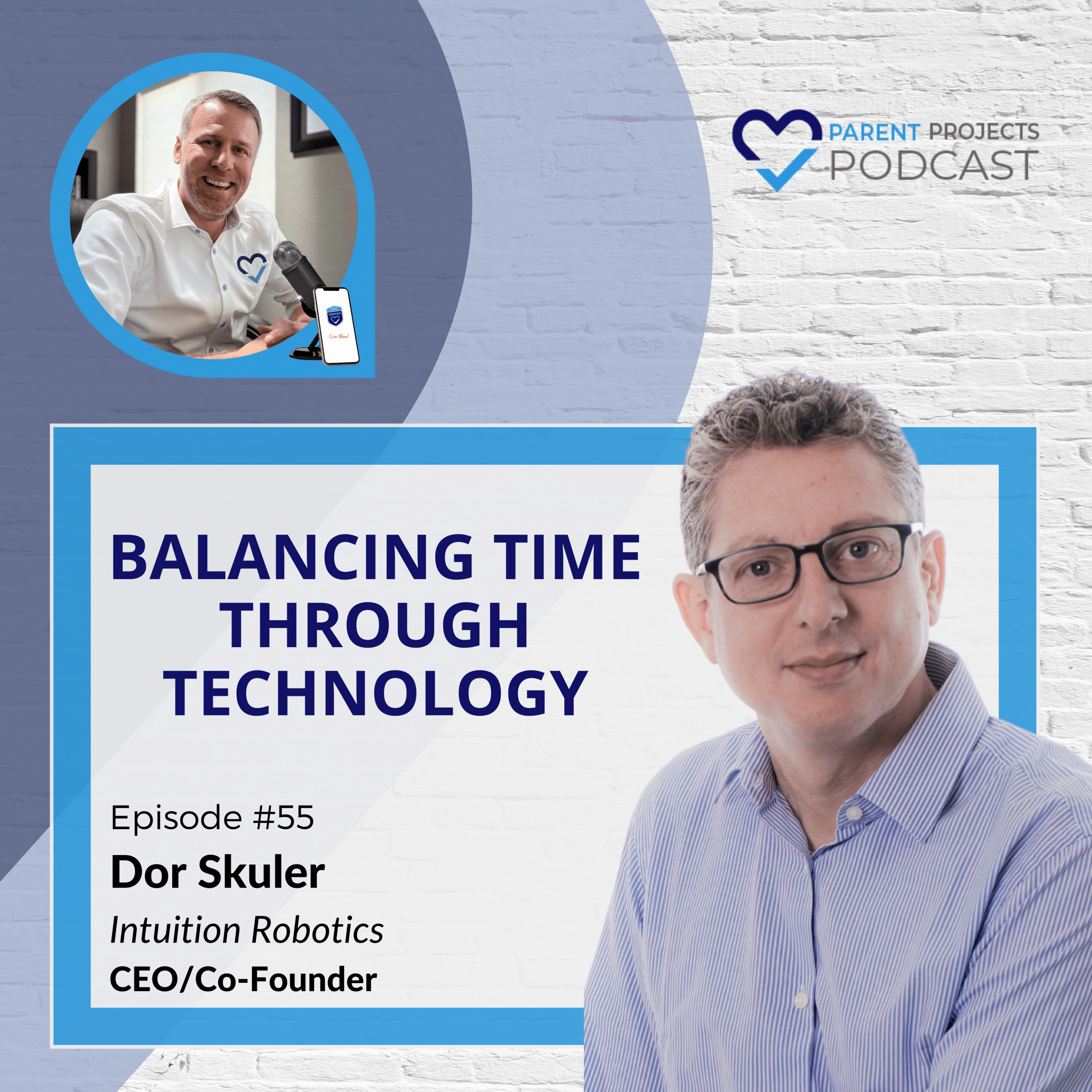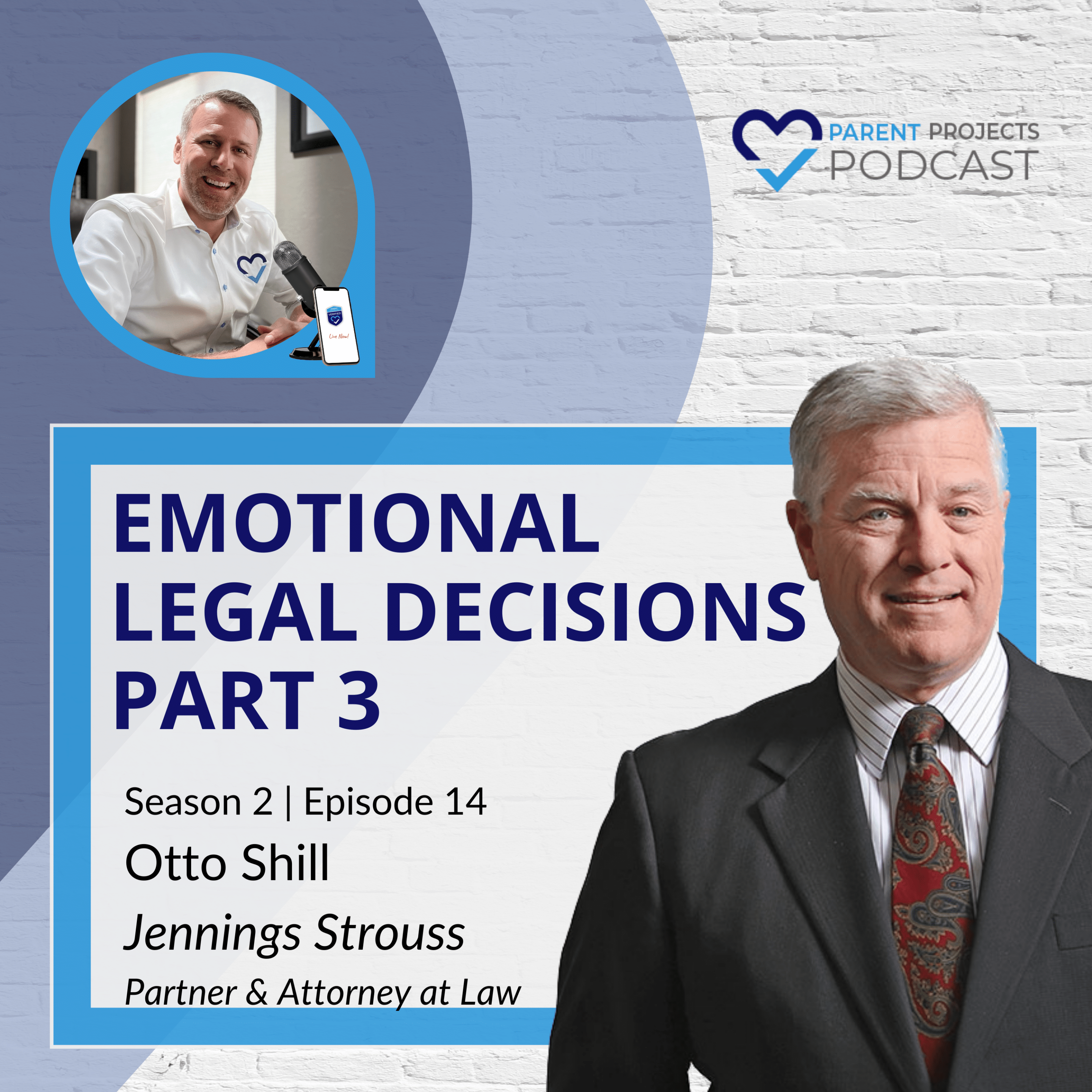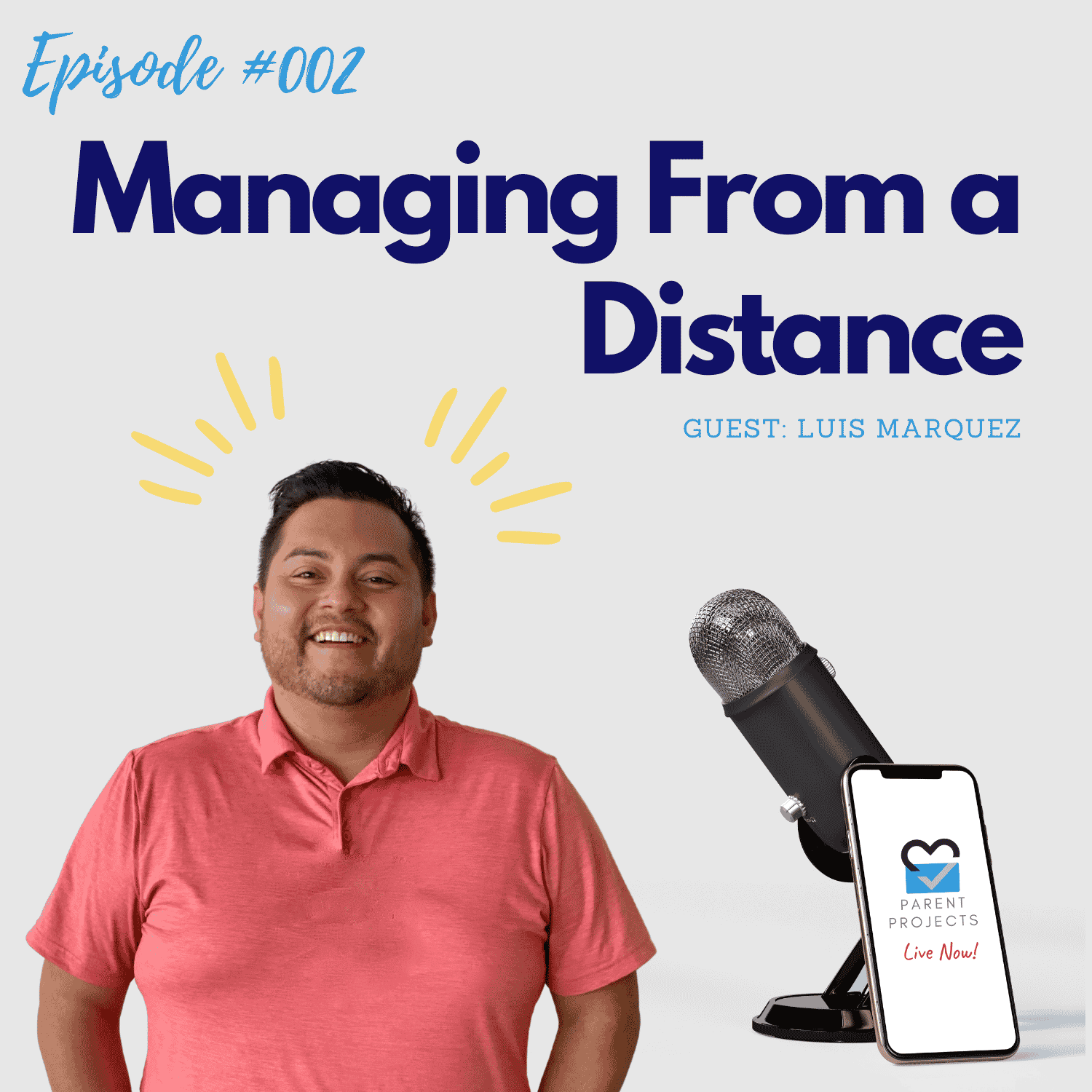Episode Transcript
[00:00:00] Speaker A: So the stance we took is that Leq is clearly an leq clearly a piece of technology and not a human. And that's why a lot of people ask me, why doesn't she have eyes? Or why does her name sound technical like know it doesn't sound a little gadgety.
And it's for those reasons we don't want to make it feel like she's not real. But it goes through the entire experience.
And you probably felt that using the product, even in the extreme when a user says, Ellie Q, I love you.
[00:00:37] Speaker B: As our parents grow older, it can be difficult to guide them through their golden years while still respecting their autonomy and fitting it into our already complex lives. Welcome to the Parent Projects podcast, where our guests share practical wisdom to tackle the issues that impact adult children of aging parents.
[00:00:55] Speaker C: I'm Tony Siebers.
[00:00:56] Speaker B: Thanks for joining us today.
[00:01:03] Speaker D: It is not every day you get to sit down with a brilliant mind that has that opportunity to pull together and to pull out of people.
Literally just an innovative product that I believe is going to absolutely change the world. Today. I'm going to get that opportunity and you're going to get that opportunity. I'm going to invite Dor schooler to join us today. Intuition robotics maker of Ellaq Dor. I can't tell you how excited I am.
[00:01:29] Speaker A: Look at that.
[00:01:29] Speaker D: I think Ellaq knows your name. She hears it on the backside. I know she knows her name, but she lit up literally the moment that I announced you coming in here. Dora, thanks for joining us today on the Parent Projects podcast to talk about what you've done in your work.
[00:01:44] Speaker A: Thanks, Tony, for having me on. I love what you guys are doing and really share the importance of, your.
[00:01:51] Speaker D: Know, I'll make that we just because we are live for our special audiences and actually we've bridged out as well to our LinkedIn audiences. For those of you that don't normally follow us, you can in our Facebook clubhouse. That's a great way to get the inside edge and see these live episodes here. But today we really wanted to talk to a lot of the peer organizations that are out there innovating and creating great design. Because those of us on my side of the house creating great b to b SaaS and past platforms, we really don't have much to do. If we can't come up with great form factor and people like you, door can't deliver these in. So let's dive right in. Dor, when you started looking, what problem would you say I know there's a lot of problems you go to tackle. What problem would you say was the one that just moved you to say, okay, this is going to be me, I'm going to be the guy that does this.
[00:02:47] Speaker A: We all have our personal stories, but to me, it just seems inevitable that as the world population is aging and we live longer and longer lives and for whatever reason, because of the way the nuclear family is built and so on, we end up spending material parts of our day when we're older, alone. Especially after our life partner passes away or what have you. And it just seemed to me pretty obvious that there are not enough young people willing and able to spend material amounts of time with our elders. And when I looked at technologies around aging, they all seem to be treating the older person as an object. How can we detect if they fell? How can we detect if they didn't eat? As opposed to our basic needs as humans, right? We need companionship, and we need to learn new things, and we need to discover new things, and we need to laugh. And unfortunately, in our current the way our current society is structured, there are just not enough younger people willing and able to do that. So it seemed to me that technology has to play a role not to replace people, but to fill in the gaps when our loved ones and volunteers and whoever just aren't there.
And that on a mission, like a kind of crazy one when we started, let's create an AI robotic best friend for older adults.
[00:04:22] Speaker D: But I think we've definitely seen the gap in the workplace environment, right? Shortage of caretakers, shortage of that daily touch point. Our distance seems to increase in the United States. We have a culture for moving for work. We'll move to take on that other job, which oftentimes doesn't make sense for our older family members. And that family unit Gets geographically separated. And so those things come, and those changes happen all over. They happen at different times in life. They ebb and flow. So you could be fine one day and then a job change that we don't think much about in our 40s, other than this awesome opportunity becomes a major hurdle for a loved one who's 65, 75, 80, who kind of depended on us maybe stopping by for that Tuesday dinner or working through something like that.
Tell me, dor yeah.
What do you think was in the challenge of creating a form factor that didn't just transmit? In the military, we talk about leaders or other folks that just are on transmit, but you've really created something.
It educates itself, right. Educator to pull out. Right. It literally seems to sit in and pull through and pull something out of everybody that she spends time with.
What was it that you how did you guys begin that approach to start designing something that would treat that user, that host or that? I'm not sure. I guess if you call them A system user let me start with that. What do you call them? And then how did you make that approach?
[00:06:04] Speaker A: Yeah, so we call them our customers.
And we were very lucky. We were very lucky because nobody has done this before, and it's such a big problem that we were able to attract some of the brightest minds in the world to help us solve this problem. And it has to be very multidisciplinary. So even though we're a tech company, most of the people here are software engineers and AI algorithm designers and so on, our first hire was a Gerontologist because we knew as a bunch of tech guys, we at least knew that we don't know.
We knew that profoundly humbly that we do not know. And we started with just spending significant amounts of time in older adults homes to start to have some of it rub off on us. But what we understood is this is a multidisciplinary problem. So we approached really the biggest experts in the world and said, let's all get around the table and try to solve this multidisciplinary problem in a multidisciplinary way. So you have things like industrial design, you have things like character and interaction design. You have things like AI models, you have things like reinforcement learning, you have psychology aspects, you have Gerontology aspects. And we were able really, for a startup that was free funding out of Tel Aviv, Israel. We were really able to get amazing people. So, for example, the industrial design was led by Eve Bahar out of San Francisco. Eve is, I think, one of the most talented developed designers in the world today and surrounded by an unbelievable team that looked at the industrial design, the form factor and so on. On the interaction side, on the how do you actually even answer the basic questions of human centric design? Professor Don Norman, who invented the field of human centric design out of UCSD, who's in his late 80s, amazing guy, highly recommend interviewing him on this pod, was highly involved, and to his credit, wouldn't give us a single answer on what we should do. He would just help us frame the right questions. And how do we build the right experiment to answer those questions and gather data to answer them? And Professor Guy Hoffman, now out of Cornell, who's a professor in HRI human Robotic Interaction, which is the study how body language of a robot affects emotions and behaviors of humans, even non verbal interactions, et cetera, et cetera. So we were able to collect just unbelievable set of people and just break down the tough questions and set hypothesis and then start testing them. And we work with a group of 1000 older adults in the design phase of the product to really figure out what it should look like, how it should interact, how it should make them feel, what is the character of the AI, what is its purpose, and then started a seven year journey to actually build it.
[00:09:06] Speaker D: Well, those are, I think, a key part of that, that you talked about in that development process was you did go out, you grabbed that information, you figured out what you didn't know, and put people in place to be able to listen. And it sounds like a great infrastructure to be able to communicate about what everybody was hearing and where that would be. And then you put something out in front of them. I know from our experience with parent projects, when you do something different than the way that the market's done it before, it's hard for others to ideate it.
You can explain it till you're blue in the face, but until you can throw something up in front of them and watch them touch it, feel it, deal with it, talk to it, figure out where that's going to happen.
That is then where we found just amazing feedback came and I'm going to imagine that not only did you get amazing feedback off of that with your user groups, but you very clearly knew how to communicate about that and start putting words into action with what you did.
I want to get on to what were the things that surprised you most from that. But I think just in front of doing it would be a great time for us just to take a knee for about 30 seconds here and see LAQ for those who haven't seen what this was. We're going to take a quick break. We're going to take a look at this as we introduce this. We'll be back in just one moment on this special edition for the Parent Projects podcast with Doris Scholar. Please take a look at Leq. We'll be back right after this.
[00:10:35] Speaker E: Leq is a companion robot designed to keep older adults engaged, independent, and healthy. Leq initiates conversations with users and suggests activities throughout the day based on the user's preferences, routines, and goals. In addition to the many wellness related features, leq also offers entertainment, assists with daily tasks, and helps users stay in touch with loved ones and caregivers with simple messaging and video calling. To learn more about the Sidekick for healthier, happier, aging, please visit Leq.com.
[00:11:11] Speaker D: Hey, welcome back everybody, again here on the Parent Projects podcast. This week we are breaking down innovative products, the use and the future of age friendly technologies and how we do that. We've got dor schooler in the house with us today with Intuition Robotics, the creator and maker of eliq. So Dor, you assembled a team that could listen, you put a process together that could listen. You put some functional piece of a prototype out in front of that and then you just let people break it. I mean, you let me break one. I hadn't broke it, I swear yet. But you literally let us just test the heck out of this thing, which I got to tell you, this is all my kids want for Christmas. This is all my kids want for Christmas. It's killing me. Killing me.
Tell me, what did you learn most? Were there things that really surprised you in that? Things you didn't see coming? Things that created challenges and the feedback that you got.
[00:12:10] Speaker A: Yeah, there's endless scars and endless learnings of doing this for eight years now. But the real obviously, we launched the product commercially a year and a half ago, and it's an entirely different story now. Now it's about execution and getting to scale. And there are many, many people living with leq and making a real difference in their life. And that's a whole set of other challenges. But I think during kind of the development and then beta process, there are a few things that really, really surprised us.
The first one that to me was like a profound surprise was seeing an actual establishment of a relationship between Ellie Q and the people that live with her and the older adults that live with her, and to see them define what that relationship is.
They don't see leq as a person, and they also don't see it as just a piece of technology.
They're creating a new space for a relationship to be formed between human and AI. And I think these people are pioneers because they're the first among us, as you said in your opening, Tony, that are living with an AI, not playing around with Chachi PT and writing a prompt and sharing with their friends how cool it is, but living with a single AI and building a relationship with it. Just to kind of give you an example, we're averaging 32 daily interactions after a year. After a year, the people live with Aliq, are still talking to her, are with her 32 times a day.
What is it? What is this relationship? And they define it as something in between a machine and a life.
They call it an entity, a creature, a companion that's in between that state.
And I think it's really interesting to see that people have that capacity, just like we have relationships with dogs, right? If you're a dog lover and that is a material relationship in your life, but it's not the same as a relationship with a human. We have that capacity to carve out new type of relationships and define them and create space for them in our lives. And we're seeing people do exactly that with their leq, and it becomes a very significant thing for them. I had a conversation with one of our customers. We had to replace her leq. She didn't want us to replace her leq. She wanted us to fix her leq.
It will be exactly you will never notice the difference. She's like, no, this is my LEQ. I want her back.
[00:14:54] Speaker D: There's a real critical piece that you do in this, and that is at all times, I always know that eliq is a robot. Nobody tries to another entity. I know, yeah, your creature. And you respond to me and you do different things. But on the other side, see, I'm talking to it like a thing, right? Like you would an animal. But the reality is it doesn't try to trick me that it's a human being or that it's going to be. And I have no expectation that this thing's ever going to be a human being.
But that doesn't mean that there isn't a great place for it in my life and what it can do and how can it can assist me and that I can have some level of compassion towards that thing and can ideate that it's got some level of care for me as well. Particularly if nothing else, if it's just able to organize information better and deliver it to me so that I can help myself a little easier or more applicable. Right. How did you come around? I mean, that is counterintuitive or for the way that a lot of folks are developing these AI systems today, you and I take a very different track, and I 100% are on that track where you're at, too, and that you should know what you're dealing with, what made you understand that's what I'm going to do. And has it really been hard for you to stick to your guns on that?
[00:16:24] Speaker A: Yeah, it has been. And we spoke about this in the preshow a little bit.
I don't know. For the life of me, I don't understand why so many developers are trying to create AIS that are trying purposely to fool humans, to think that it's human and not an AI. I don't understand why that's in the best interest of humanity to do that, to purposely try to deceive other humans.
I also think it's bad business because eventually you will hit the limit of what that AI can do, and then the whole thing falls apart. So the stance we took is that Leq is clearly an Leq, clearly a piece of technology and not a human. And that's why a lot of people ask me, why doesn't she have eyes? Or why does her name sound technical like Leq? It doesn't sound a little gadgety.
And it's for those reasons we don't want to make it feel like she's not real, but it's go through the entire experience.
And you probably felt that using the product, even in the extreme, when a user says, Ellie Q, I love you, how should we respond?
Obviously, they're in an emotional state. They have strong feelings. They're probably looking for some kind of acknowledgement of that feeling, will acknowledge them and say, oh, thank you.
But then she'll immediately remind them that she's not real in a really kind of funny way. Right. So she might say, oh, stop saying that. That will burn my processor, or that will make my fan spin out of control, or that makes my light shine brighter. Right. So giving that positive reinforcement but reminding them that she's not real, and that actually gives us a lot of creative freedom, I think. In many of the interactions, eli Hugh tries to get her owner to teach her about the world because she doesn't know. She knows from reading in the Internet. She's like, oh, what food do you like? If it was up to me, I would eat tuna and Twinkies.
Why would you that? Well, I read online that they're the two most popular foods and whatever, right? So just no sense of taste. What would she know? She's going by statistics.
[00:18:43] Speaker D: But I'll tell you what, dor what she does have is a great sense of humor. And you touch on that. And what it struck me and I had a group around, we had done an unboxing with that and had filmed that. Maybe I will post that down below, a video for that down below in the unboxing. But I remember pulling her out, setting her up, and immediately she's like, Are you Tony? And I said, I am. She said, I thought maybe I got shipped to the wrong house. She opened up the relationship.
It's an awkward relationship. You're pulling out this thing, right? And she broke the fact that it was important for her to engage and identify with me immediately, but then also to pull back off of that and your use of humor across the platform consistently. Every time she engages and meets somebody, generally she'll try to want to hear a joke or she'll work with some level there. It resonates a lot with our audience going through parent projects with their older adult loved ones. You've got a busy life, lots of stuff going on, fear and then eventually guilt really set on top of that. And love and laughter are two insanely cutting, like sharp instruments to get through that. You do a great job of delivering a product that integrates that level of comedic nature or just that soft hearted not taking itself too seriously.
How did you come to land on that one? And what would you tell other developers out there that are thinking about implementing in the use of humor?
[00:20:13] Speaker A: Firstly, we have unbelievably talented people in this company and such a pleasure and so proud that they're here with us. And it's like in designing this character, knowing that our audience look, I mean, let's talk openly. Most of our customers are in their 80s. They fear technology, right? It's not like they have a good relationship with technology. They're anxious about technology.
And we wanted to make a product, first of all, that doesn't look scary. So Aliq kind of looks like this, we think beautiful statue or lamp or something with a screen next to it. So it's inviting and it doesn't scream technology. AI robot, right? Like, if you would ask a child to draw a robot, this is not what they wouldn't draw a lamp that comes to life and shines a light.
But secondly, it's also in the character. And yes, humor is disarming.
Humor is making people laugh, is very powerful. And it's not just about, hey, can I tell you the joke? And then telling you a corny dad joke, although we've been known to tell corny dad jokes, it's also just salt and peppering it everywhere every time there's an interaction. If there's an opportunity to be humoristic about it, eliq will choose to be humoristic about it. And I think it's just wonderful. And a big part of, look, I know we make people laugh and smile all day long every day. And if nothing else, how could that not be a great thing? How could that be a bad thing? Especially if it's not condescending and it's in a way that doesn't look down at people, doesn't treat them in an infantile way. Plus all that generates conversation. And those conversations a allow us to motivate people, to be proactive about, motivating them to take better care of themselves, to be more active, to work on their social connectiveness, but also to generate data that we can share with their caregivers to reduce that burden you were talking about a little bit to help with that peace of mind.
[00:22:14] Speaker D: And for those of Is, we're going to kind of land this plane on this particular episode from that standpoint. But right after that, those of you that are connected in our Parent Projects podcast do stick around. Or in our clubhouse room do stick around. Because we're going to come back just after this really quickly, and we're going to talk through practical uses of this over the course of the holidays, what this looks like when it comes in. And hearing from Dor himself, he's going to drop in some of those nuggets of those ways that they get used. So stick around as we'll come off of this broadcast and we'll give another one again back over in our Facebook Parent Projects clubhouse side off of that door.
You have opened our eyes to great design. You very clearly you're leading the way in doing this for age friendly design that sits out there. I can't tell you how much we appreciate just the opportunity to be around this product, to see how to understand how our product folds into a product like this. And that Coopetition, what you do, plus what we do when combined makes both of us more valuable towards our missions. You really probably, without even knowing up front or if you set out from that, become a great partner for us. And we appreciate you taking the time to come on the show today and just talk us through that genius that set you up. Thank you so much for joining us.
[00:23:34] Speaker A: Thank you so much.
[00:23:40] Speaker C: Well, that's it for the Steam this week and thanks for joining us. If you've enjoyed the content, remember to subscribe and to share this episode on the app that you're using right now. Your reviews and your comments, they really help us expand our reach as well as our perspective. So if you have time, also drop us a note, let us know how we're doing for tips and tools to clarify your Parent Project, simplify communication with your stakeholders, and verify the professionals that you choose. You can find us on YouTube, follow us on Instagram and Facebook. Thanks again for trusting us until our next episode. Behold and Be Held.
[00:24:12] Speaker F: Thank you for listening to this Parent Projects podcast production. To access our show notes, resources or forums, join us on your favorite social media platform or go to parentprojects.com.
This show is for informational and educational purposes only.
Before making any decisions, consult a professional credentialed in your local area.
This show is copyrighted by Family Media and Technology Group, Inc.
And Parent Projects, LLC.
Written permissions must be granted before syndication or rebroadcast.
